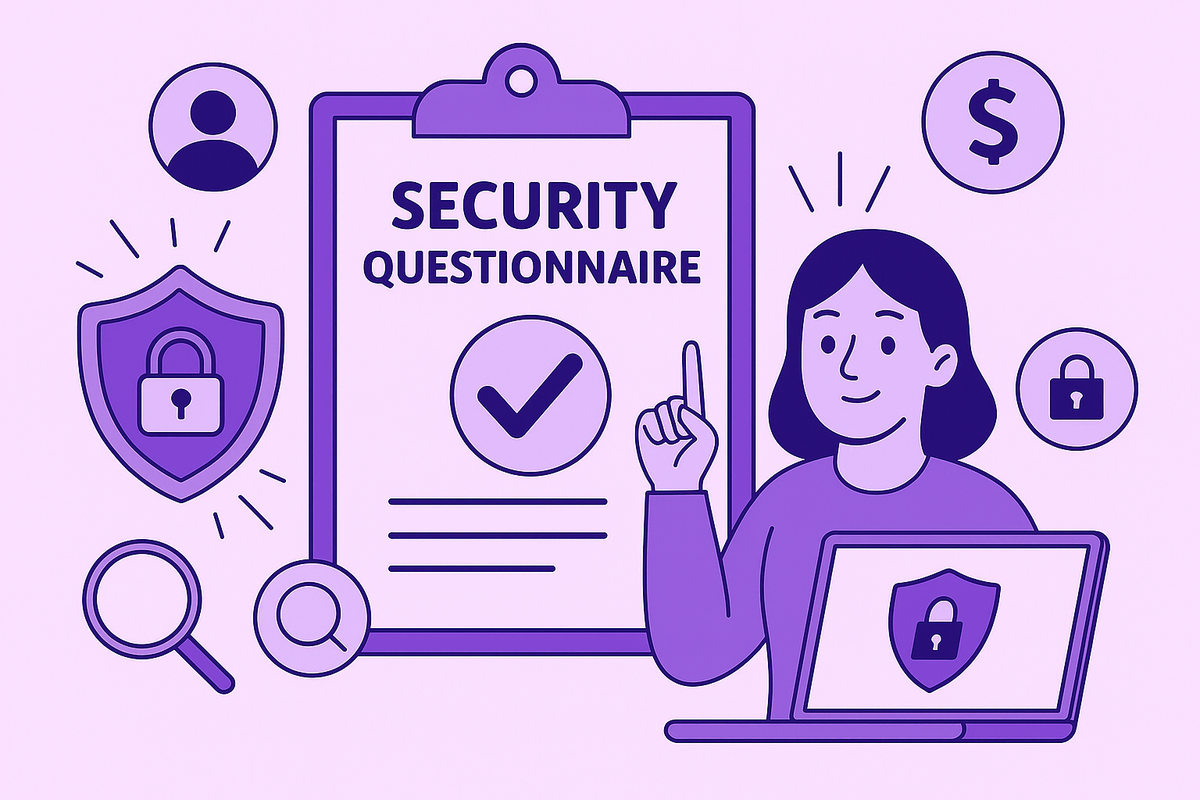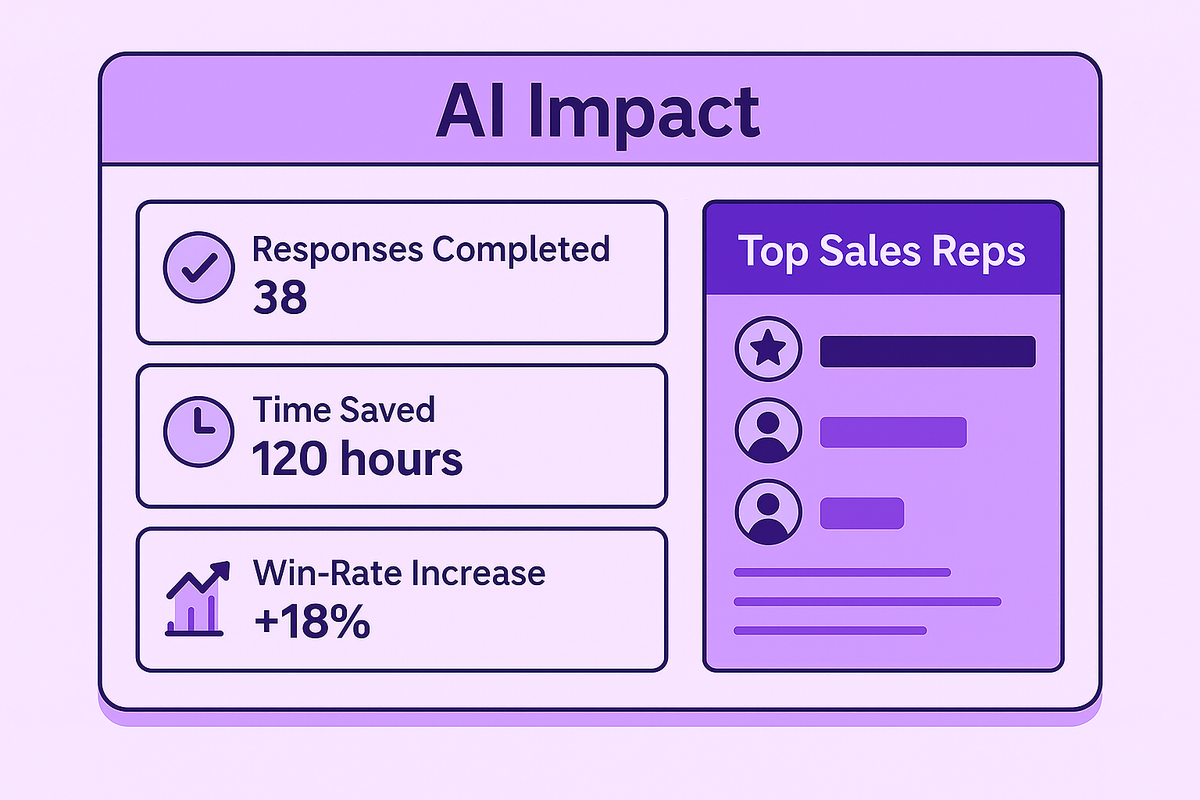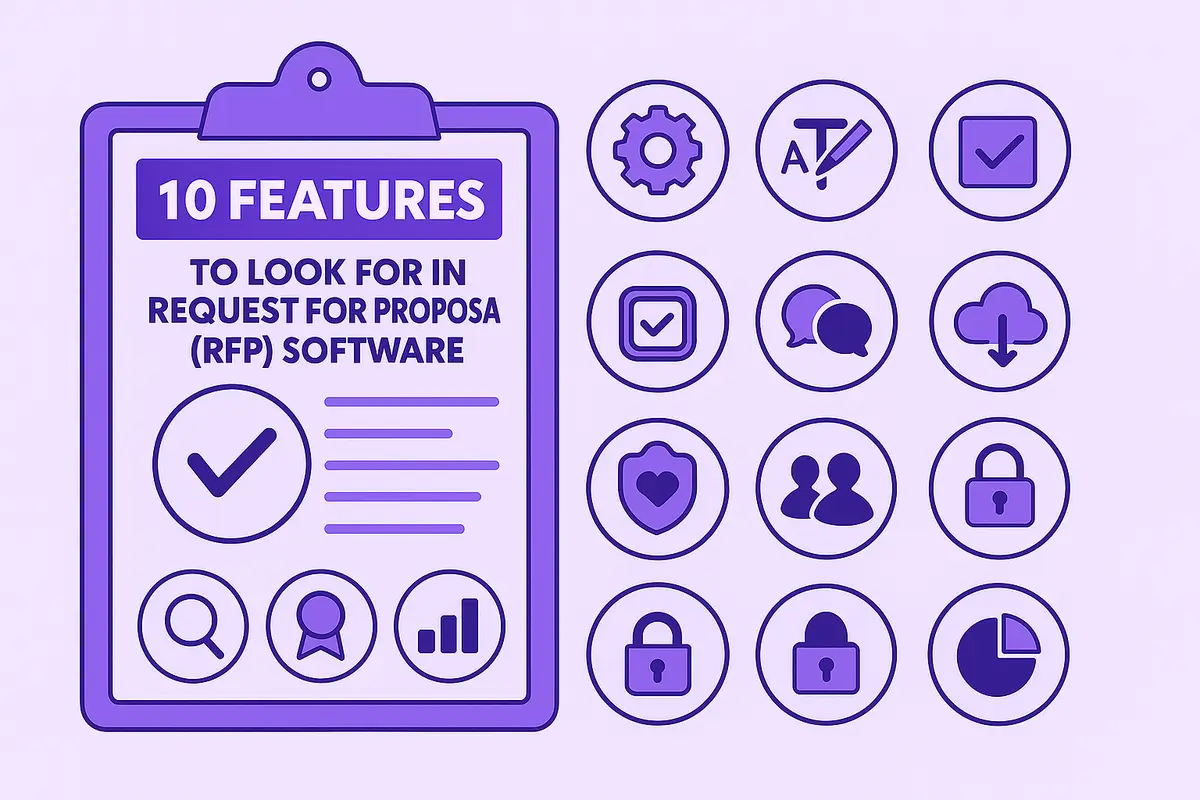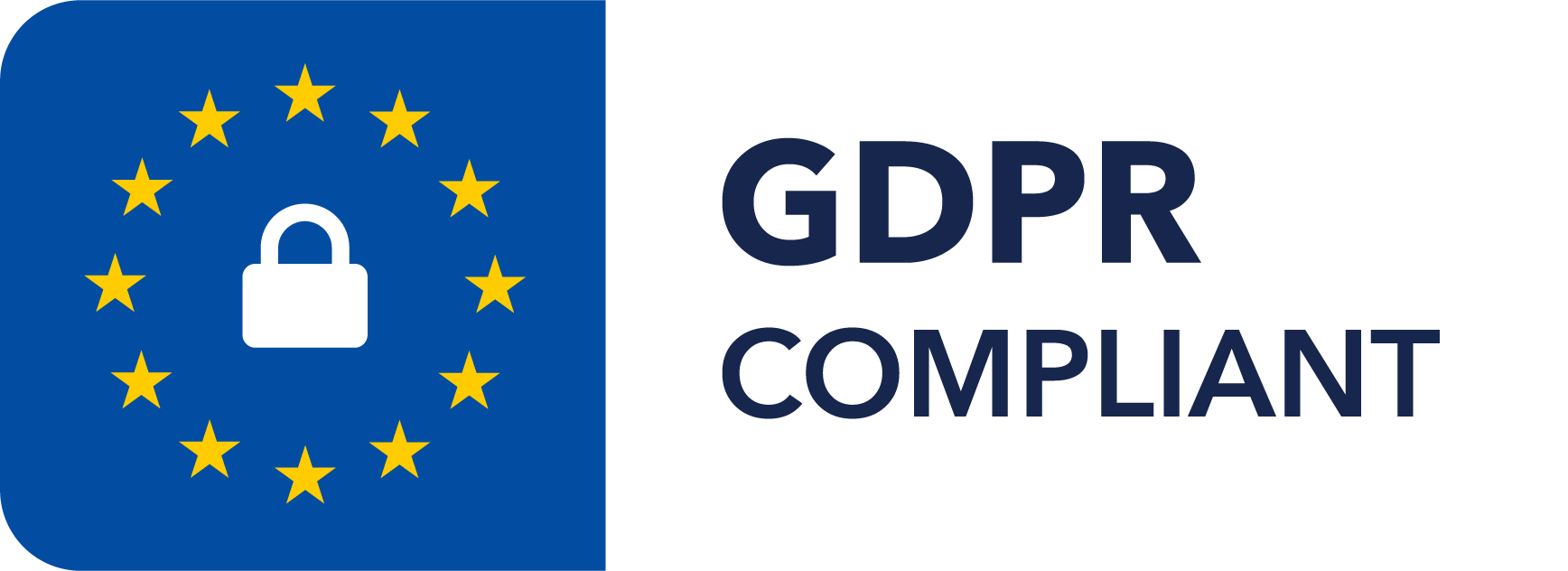How to Win More Deals with Security Questionnaires
July 7, 2025
By
Evie Secilmis

Nothing slows down a promising deal quite like a 100-question security questionnaire landing in your inbox. For many sales teams, it’s a roadblock—a sudden detour into technical jargon that pulls in resources from IT, legal, and compliance. The momentum you built with your prospect can come to a grinding halt. But what if you could reframe this hurdle? Instead of seeing it as a tedious chore, view it as a chance to build deep trust and stand out from the competition. A thoughtful, efficient, and professional response can be a powerful sales tool. This guide will show you how to transform your process and win more deals with security questionnaires.
How Security Questionnaires Help You Win More Deals
In today's digital age, security is a top priority for businesses. Protecting sensitive data is crucial. Security questionnaires play a vital role in this process.
These tools help assess the security measures of vendors and partners. They are essential for identifying potential risks and vulnerabilities. By using security questionnaires, organizations can enhance their risk management strategies.
Data protection is another key area where security questionnaires prove invaluable. They ensure compliance with regulations and help maintain trust with clients. Organizations can demonstrate their commitment to safeguarding information.
Security questionnaires are not just about compliance. They are about building a robust security framework. This article will explore their importance and how they contribute to a secure business environment.
What Is a Security Questionnaire?
Security questionnaires are essential tools for evaluating a vendor’s security practices. These documents help organizations understand the security measures that potential partners have in place. They're often used to pinpoint areas of risk.
These questionnaires come in various forms and complexities. They range from straightforward checklists to detailed assessments. Regardless, their main goal is to ensure consistent scrutiny of security protocols.
Typically, a security questionnaire covers multiple areas. These might include data protection, access controls, incident response, and regulatory compliance. The questions aim to provide a comprehensive view of a vendor's security measures.
By using security questionnaires, businesses ensure vendors and third parties meet their security standards. This rigorous process plays a crucial role in safeguarding against potential threats and maintaining robust cybersecurity.
Why They're a Must-Have for Risk Management
Security questionnaires play a pivotal role in risk management. They allow organizations to detect potential weaknesses within their partner network. By assessing these vulnerabilities, businesses can proactively address security threats.
Implementing a security questionnaire process is crucial for any comprehensive risk management strategy. This practice not only identifies risks but also helps in reducing financial losses. Moreover, it prevents reputational damage arising from security breaches.
Key benefits of utilizing security questionnaires include:
- Enhancing transparency and trust with partners
- Ensuring compliance with industry regulations
- Streamlining the vendor selection process
Furthermore, these questionnaires provide insights into a vendor’s security practices. They reveal if partners align with the organization’s security objectives. Thus, using security questionnaires contributes to a safer and more resilient business environment, fortifying the company against unforeseen risks.
The Role of Security Questionnaires in Sales
Let's talk about how security questionnaires fit into the sales process. It's easy to see them as just another box to check or a roadblock slowing down a promising deal. But what if you viewed them as a chance to shine? A thorough and professional response is more than just paperwork; it's a powerful tool to build trust with your prospects. When you confidently showcase your security posture, you're not just answering questions—you're demonstrating your commitment to protecting their data. This can be the very thing that sets you apart from the competition and makes a potential client feel secure in their decision to work with you, ultimately helping you close the deal faster.
What Makes a Security Questionnaire Effective?
Effective security questionnaires comprise several key elements that provide a comprehensive evaluation of a vendor's security measures. Each component must be carefully crafted to elicit detailed and informative responses. This ensures a thorough assessment of potential security risks.
An effective questionnaire typically includes questions about access controls. It probes how vendors manage and secure access to sensitive data. This area is crucial for preventing unauthorized data exposure.
Also significant are questions focused on incident response plans. Understanding how a vendor addresses security incidents can clarify their readiness to handle breaches. This helps in evaluating the robustness of their security posture.
Key components to include are:
- Access controls
- Incident response strategies
- Data protection policies
- Compliance with industry standards
Finally, these components should be tailored to align with organizational objectives and industry requirements. Customizing questions to suit specific security concerns ensures the questionnaire remains relevant and effective. If you want to learn about how to effectively win security questionnaires check out the article- win more deals with security questionnaires.
Employee Security Training
Your technology can be locked down tight, but what about your team? This is exactly what a security questionnaire aims to find out when it asks about employee training. It’s a critical component because your people are the first line of defense against common cyber threats. A strong training program shows you’re building a culture of security awareness, not just relying on software. Expect questions about the frequency and topics of your training sessions—like phishing simulations and data handling protocols. Demonstrating a robust and regular training schedule is a powerful way to build trust and show partners you’re committed to protecting their data. Having this information well-documented and ready to go is essential for an efficient response process. It proves that your security measures are thorough, helping you win deals faster by confidently showcasing your commitment to security.
How Security Questionnaires Protect Sensitive Data
Security questionnaires play a critical role in safeguarding data. They help identify weaknesses in how vendors protect sensitive information. This process is essential for preventing data breaches and maintaining trust.
Through these questionnaires, organizations can evaluate a vendor's data encryption methods. Encrypting data ensures confidentiality and protects against unauthorized access. Assessing these methods confirms that vendors have appropriate measures in place.
Moreover, data retention policies are scrutinized through security questionnaires. Understanding how long vendors retain data and how it's disposed of is crucial. This ensures compliance with data protection regulations and limits unnecessary exposure.
Essential questions related to data protection often include:
- Methods of data encryption
- Data retention and disposal policies
- Compliance with data protection regulations
Such inquiries ensure alignment with best practices and legal requirements, reinforcing overall data protection efforts.
Common Questionnaire Types and Frameworks to Know
Security questionnaires come in several forms, each suited to different needs. Basic checklists provide a quick assessment of a vendor's security readiness. They cover essential practices without delving into complex details.
More comprehensive questionnaires focus on frameworks that align with industry standards. These detailed assessments evaluate a vendor's adherence to frameworks like ISO 27001 or NIST. This alignment demonstrates a systematic approach to data security.
Framework-focused questionnaires often include inquiries related to:
- Compliance with ISO and NIST
- Security policy documentation
- Incident response capabilities
Using these frameworks, companies can benchmark security practices and ensure vendors meet minimum standards. This thoroughness fosters confidence in the supply chain's security posture.
How to Create and Respond to Security Questionnaires
Creating effective security questionnaires requires clarity and precision. Questions should be specific and relevant to your industry's security needs. It's essential to tailor the questionnaire to address potential risks uniquely.
While responding, vendors should be honest and comprehensive. Transparency builds trust and strengthens partnerships. Incomplete or vague answers may lead to misunderstandings or delays.
Here are some best practices to consider:
- Ensure questions are clear and concise.
- Tailor questionnaires to specific industry threats.
- Review responses for completeness and accuracy.
Frequent reviews and updates to the questionnaire are crucial. This ensures alignment with evolving security threats and regulations. Establishing a routine for updates keeps assessments relevant and effective.
Creating Questionnaires Effectively
Building a security questionnaire that gets you the information you need without being a burden on your vendors is an art. The goal is to be thorough yet concise. You want to ask questions that are directly relevant to the services they’ll provide and the data they’ll handle. A well-crafted questionnaire not only helps you assess risk but also sets the tone for a professional and security-conscious partnership from the very beginning. It shows that you take security seriously and expect your partners to do the same. The key is to focus on what truly matters for your organization’s security posture.
Work as a Team
Security isn't just an IT issue; it's a business-wide responsibility. When you're putting together a security questionnaire, it's crucial to get input from different departments. Your IT and security teams will know the technical controls to ask about, but your legal team needs to ensure compliance with regulations, and the compliance department will have its own set of standards to uphold. Working as a team to create and regularly update the questionnaire ensures you cover all your bases. This collaborative approach prevents blind spots and results in a comprehensive document that accurately reflects your company's security requirements.
Personalize Questions for Each Client
A one-size-fits-all questionnaire rarely works. The security risks associated with a marketing analytics platform are very different from those of a payment processor. Tailoring your questions to each specific vendor or client shows that you’ve done your homework and are genuinely invested in understanding their unique security landscape. This personalization makes the process more efficient for everyone involved. Vendors can focus on providing relevant information instead of slogging through questions that don’t apply to them, which can speed up the entire procurement cycle and lead to more meaningful conversations about security.
Responding to Questionnaires to Win Deals
On the flip side, receiving a lengthy security questionnaire can feel like a roadblock in the sales process. But it doesn't have to be. With the right approach, you can turn it into an opportunity to build trust and showcase your company's commitment to security. This is your chance to prove you're a reliable partner who can be trusted with sensitive data. Responding thoughtfully and efficiently can actually accelerate your deal cycle. Using an AI-powered platform can help you manage these responses, ensuring your answers are always accurate, consistent, and readily available, freeing up your team to focus on closing the deal.
Keep Answers Simple and Direct
When you’re deep in the technical weeds, it’s easy to forget that the person reading your response might not be a security engineer. Often, procurement managers or legal counsel are the ones reviewing your answers. Avoid overly technical jargon and long, complicated explanations. Instead, be direct and write in plain language that anyone can understand. A clear, concise answer demonstrates confidence and transparency. If a technical explanation is necessary, consider providing a brief, simple summary first, followed by the more detailed information. Clarity builds trust faster than complexity ever will.
Provide Proof for Your Claims
Saying you have a specific security control in place is one thing; proving it is another. You can strengthen your responses and build immense trust by backing up your claims with evidence. Whenever possible, link to supporting materials like official policy documents, network diagrams, third-party audit reports, or certifications. This not only validates your answers but also makes the reviewer's job much easier. Having a centralized library of these documents is key. It ensures your team can quickly pull the right proof points, making your submission more credible and professional.
Be Honest, Especially When the Answer Is "No"
It can be tempting to stretch the truth to present a perfect security posture, but honesty is always the best policy. No company is perfect, and reviewers know this. If you don't meet a specific requirement, say so. Being upfront about a "no" and then explaining your compensating controls or your roadmap to address the gap shows integrity and a mature approach to risk management. This transparency is far more reassuring to a potential client than a flawless questionnaire that seems too good to be true. Trust is the foundation of any business relationship, and it starts here.
Address Potential Issues Proactively
A great response doesn't just answer the question asked; it anticipates the next one. As you fill out the questionnaire, put yourself in the client's shoes. If an answer might seem unclear or raise a potential concern, address it head-on within your response. For example, if you answer "no" to a question about a specific security measure, you can immediately follow up by explaining the alternative, and perhaps more effective, control you have in place. This proactive approach shows that you understand their concerns and are thinking critically about how to protect their data.
Highlight Your Strengths and Certifications
A security questionnaire isn't just a test you have to pass; it's a platform to showcase your strengths. Don't be modest about your security achievements. If you have industry-recognized certifications like SOC 2, ISO 27001, or HIPAA compliance, make sure they are front and center. Mention any security awards you've won or positive feedback from third-party penetration tests. Framing your security program as a key feature and a competitive differentiator can turn a routine compliance check into a powerful sales tool that sets you apart from the competition.
Help the Customer Evaluate Competitors
You can use your responses to subtly guide the customer's evaluation process. By explaining not just *what* you do but *why* you do it, you can educate them on security best practices. This positions you as a knowledgeable expert. You can even frame your answers in a way that highlights the importance of certain security measures that you excel at. This encourages the customer to ask your competitors about those same measures, potentially exposing gaps in their security programs and reinforcing the value you provide.
Follow Up After Submission
Don't let your questionnaire disappear into a black hole. After you submit your responses, the work isn't over. A simple follow-up can make a big difference. Send a brief email to your contact to confirm they received the document and offer to schedule a call to walk them through any of the answers or provide additional clarification. This proactive communication shows that you are responsive, engaged, and committed to the partnership. It keeps the conversation going and reinforces the idea that you are a reliable and accessible partner.
How to Vet Vendors with Security Questionnaires
Security questionnaires are pivotal in vendor risk management. They help evaluate the security posture of potential and existing vendors, thus mitigating risks.
These questionnaires serve to identify vulnerabilities and compliance issues. This helps organizations maintain secure relationships with their vendors. Transparency and accountability are key outcomes.
Here are ways security questionnaires aid vendor risk management:
- Assess vendor compliance with security standards.
- Identify potential security weaknesses.
- Inform decisions on vendor partnerships.
By integrating these questionnaires into vendor management practices, businesses ensure robust security. They play a vital role in safeguarding sensitive information and maintaining trust with partners.
Common Questionnaire Challenges (and How to Solve Them)
Managing security questionnaires can be complex and time-consuming. Many organizations struggle with standardized assessments and the ever-evolving security landscape. These challenges can hinder effective risk management.
To address these challenges, consider the following solutions:
- Automate questionnaire processes to save time.
- Regularly update questionnaires to match current security threats.
- Provide clear guidance to vendors for consistency.
By implementing these strategies, organizations can streamline the management of security questionnaires, ensuring a more proactive approach to risk management.
The Time Commitment
Let’s be honest, security questionnaires can bring a promising deal to a grinding halt. They are a critical part of the sales process, but they often introduce a significant time delay. Your sales team is ready to move forward, but suddenly they’re stuck hunting down answers from IT, legal, and compliance departments. This manual process of chasing subject matter experts, gathering information, and formatting responses can add days, or even weeks, to your sales cycle. Each delay is an opportunity for a competitor to step in or for the deal to lose momentum, making it a major bottleneck for revenue teams focused on closing deals efficiently.
Sharing Too Much Sensitive Information
Finding the right balance between transparency and security is a common challenge. You want to build trust with a potential customer by providing thorough answers, but you can't risk exposing sensitive details about your security infrastructure. Sharing too much, like specific software versions or detailed network diagrams, could inadvertently give bad actors a roadmap to your systems. The best approach is to be open about your security policies and procedures without giving away the keys. You can provide comprehensive answers and state that more granular details are available upon request, typically after signing a Non-Disclosure Agreement (NDA) to protect both parties.
Ensuring Accuracy and Consistency with Automation
Answering security questionnaires manually is not just time-consuming; it’s also a recipe for inconsistency. Questions are often repetitive, and team members might resort to copying and pasting answers from old documents. This is risky because an outdated response can easily slip through, creating contradictions that raise red flags for your potential customer. Using an AI-powered platform to manage your responses ensures every answer is pulled from a single, up-to-date source of truth. This not only speeds up the process but also guarantees that your responses are always accurate and consistent, presenting a professional and trustworthy front every time.
Turn Your Questionnaire Process Into a Competitive Advantage
Security questionnaires are essential for safeguarding your organization's data and integrity. They form the backbone of effective risk management and data protection strategies, helping to shield against potential security incidents.
By prioritizing the development and management of comprehensive security questionnaires, organizations can enhance their security frameworks. This proactive approach fosters stronger partnerships and ensures long-term resilience.
Frequently Asked Questions
How can our sales team speed up the security questionnaire process? It feels like it always slows down our deals. The key to speeding things up is preparation. Most of the delay comes from scrambling to find answers after the questionnaire has already landed in your inbox. The best approach is to create a centralized library of your most common and up-to-date answers. By having this single source of truth, your team isn't starting from scratch every time. You can pull accurate, pre-approved information instantly, which transforms a week-long fire drill into a task you can complete in a few hours.
What's the biggest mistake you see companies make when responding to these questionnaires? The most common mistake is providing inconsistent or outdated answers. This often happens when different team members are pulling information from old documents or writing responses from memory. When a potential client sees conflicting information, it immediately raises red flags about your organization and attention to detail. Honesty is a close second. Trying to fudge an answer or seem perfect is far more damaging than being transparent about a control you don't have in place.
Is it really okay to answer "no" to a question? I'm worried it will disqualify us immediately. It is absolutely okay to answer "no." In fact, a questionnaire with all "yes" answers can sometimes seem suspicious. The secret isn't in the "no" itself, but in how you explain it. A mature and trustworthy response will be honest about the gap and then proactively explain the compensating controls you have in place or detail your roadmap for addressing it in the future. This shows integrity and a sophisticated approach to security, which builds far more trust than a perfect-looking but less-than-honest response.
How can I get our technical teams to prioritize helping with these questionnaires? The best way to get buy-in from your technical experts is to frame the request around its impact and make it easy for them to contribute. Instead of just forwarding the questionnaire, explain that their input is the final step to closing a specific deal and directly contributes to company revenue. Even better, use a system where you can assign specific questions directly to them, so they don't have to read the entire document. When you respect their time and connect their work to a business outcome, they're much more likely to help quickly.
We're a smaller company. Do we need to have such a formal process for this? Yes, but "formal" doesn't have to mean "complicated." Even as a small team, establishing a simple, repeatable process will save you immense headaches as you grow. Start by documenting your answers in a shared location that everyone can access. This ensures consistency and professionalism, which is especially important when you're trying to win deals with larger, more security-conscious clients. A solid process, no matter how simple, shows you take their security seriously and helps you compete effectively.
Key Takeaways
- Treat Security Questionnaires as a Trust-Building Tool: Instead of seeing them as a roadblock, view them as your chance to prove you're a reliable partner. A clear, comprehensive response demonstrates your commitment to security and can differentiate you from competitors.
- Prove Your Claims and Be Radically Honest: Don't just say you're secure—show it by backing up answers with supporting documents like certifications. If you don't meet a requirement, explain your compensating controls; transparency builds more trust than a flawless but unproven response.
- Automate Your Responses for Consistency and Speed: Manual copy-pasting leads to outdated answers that can kill a deal. Using a central, AI-powered platform ensures every response is accurate and up-to-date, freeing your team to focus on selling instead of searching for information.
Related Articles
Share this post
Link copied!




















